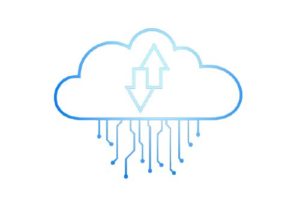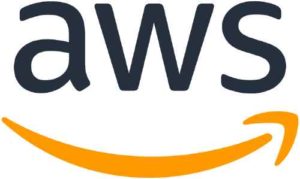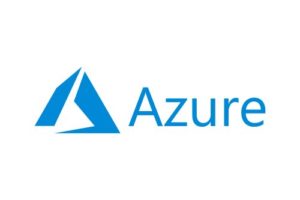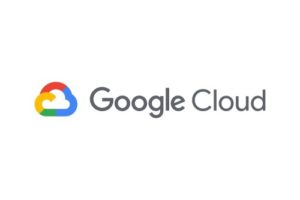AWS Certification Training
- 181k Enrolled Learners
- Weekend/Weekday
- Live Class
AWS, Azure, and Google Cloud are the three platforms that offer a range of services, including infrastructure as a service (IaaS), platform as a service (PaaS), and software as a service (SaaS). However, each platform has its strengths and areas of focus. AWS is known for its wide range of services, Azure has a strong focus on building and deploying applications, and GCP is known for its machine learning and data analytics offerings. In this blog, we will look at the differences between AWS, Azure, and GCP using the topics below.

Cloud computing enables convenient, on-demand access to a shared pool of configurable computing resources (such as networks, servers, storage, applications, and services)that can be rapidly provisioned and released with minimal management effort. It allows users to access and use these resources over the Internet rather than owning and maintaining them locally. You can learn more from the Cloud Computing Online Course.
Here are some statistics about cloud computing:
The global cloud computing market is expected to continue growing in the coming years, with some estimates projecting a compound annual growth rate of over 20% through 2026. Major players in the cloud computing market include Amazon Web Services (AWS), Microsoft Azure, and Google Cloud.
Stay Ahead in the Cloud Era with Top-Notch AWS SysOps Training!
This “AWS vs Azure vs GCP” video by Edureka provides you a clear-cut comparison of top three cloud service providers & help you understand where their strengths and faults lay.

Amazon Web Services (AWS) is a cloud computing platform that provides a wide range of services, including computing, storage, networking, databases, analytics, machine learning, security, and more. These services are designed to work together to help organizations build, run, and scale applications and websites more efficiently and at a lower cost.
AWS is owned and operated by Amazon, a leading e-commerce company. It was launched in 2006 and has since become the dominant cloud computing platform, AWS Currently Has a 5.8% Market Share in Web Hosting. AWS has a global infrastructure of data centers and networks that support millions of customers worldwide.
AWS offers a pay-as-you-go pricing model, meaning you only pay for the resources you use. This makes it an attractive option for startups and small businesses, as they can scale their resources up or down as needed without incurring significant upfront costs. AWS also provides various tools and resources to help developers build, deploy, and manage their applications, including the AWS Management Console, a web-based interface for managing AWS resources.
AWS is widely used by businesses of all sizes, including startups, small and medium-sized businesses, and large enterprises. Government agencies and non-profit organizations also use it. Some major companies that use AWS include Netflix, Airbnb, and Spotify.

Microsoft Azure is a cloud computing platform and infrastructure created by Microsoft for building, deploying, and managing applications and services through a global network of Microsoft-managed data centers. It provides a range of cloud services, including that computing, analytics, storage, and networking. Users can choose and configure these services to meet their specific needs.
Azure offers various tools and services for developing and managing applications, including machine learning, analytics, and the Internet of Things (IoT). It also provides virtual machines, databases, and networking. Azure also provides various services for building, deploying, and managing applications, including DevOps, monitoring, and security.
Azure is designed to be flexible and scalable so that you can build and deploy a wide range of applications and services. You can use Azure to build web and mobile applications, data analytics, and machine learning models, as well as to create and deploy Internet of Things (IoT) solutions. You can also use Azure to build and deploy applications using a variety of programming languages, tools, and frameworks, including .NET, Java, Python, and Node.js.
Azure is available through a pay-as-you-go subscription model, which allows you to only pay for the resources you use. This makes it a cost-effective solution for businesses of all sizes.
Bridge the gap between development and operations with our top-tier Azure DevOps online training.

Google Cloud Platform (GCP) is a suite of cloud computing services that runs on the same infrastructure that Google uses internally for its end-user products, such as Google Search and YouTube. GCP offers computing, networking, storage, analytics, machine learning, security, and application development services, among others.
GCP provides a cloud infrastructure and a set of tools and services for developers to build, run, and manage applications on that infrastructure. These tools and services include a range of managed services, such as managed databases, data warehousing, and analytics, as well as developer tools, such as application hosting, version control, and container orchestration.
GCP is a good choice for businesses and organizations that want to leverage the scale and reliability of Google’s infrastructure and the tools and services provided by Google Cloud to build and run their applications. It’s also a good choice for developers who want to take advantage of the wide range of services and tools GCP provides to build and deploy their applications quickly and efficiently.
Transform your IT skills into cloud expertise with our Cloud Architect Courses!
Here is a comparison of availability zones (AZs) in Amazon Web Services (AWS), Microsoft Azure, and Google Cloud Platform (GCP):
| Provider | Definition |
| AWS | An availability zone (AZ) is a physically separate data center within an AWS region. Each region has at least two AZs, and each AZ has its power, networking, and cooling infrastructure. AZs are designed to be isolated from failures in other AZs. |
| Azure | An availability zone (AZ) is a physically separate data center within an Azure region. Each region has at least two AZs, and each AZ has its power, networking, and cooling infrastructure. AZs are designed to be isolated from failures in other AZs. |
| GCP | A zone is a deployment area within a region. Zones are isolated from each other, with their power, cooling, and networking infrastructure. Each zone has one or more clusters, which are groups of Compute Engine resources within a zone. |
For all three cloud providers, availability zones are designed to provide high availability and redundancy for your applications and workloads. They allow you to spread your resources across multiple physical locations within a region to protect against failures and outages.
It’s challenging to provide accurate and up-to-date information on market shares and growth rates for cloud providers like Amazon Web Services (AWS), Microsoft Azure, and Google Cloud Platform (GCP), as these figures can vary over time and depend on various factors, such as the specific markets or regions being considered and the specific products or services being offered.
However, AWS is generally considered the market leader in the cloud computing industry, with a significantly larger market share than Azure or GCP.
Market share for cloud services in Q1 of 2022: AWS had a 33% market share, followed by Microsoft Azure (21%), and Google Cloud (8%).
Market Dominance for Cloud Services: The Big Three Public Cloud Service Providers (CSPs) currently own a combined 62% of the market, up from a combined market share of 58% as of the third quarter of 2022.
Spending on Cloud Services as a Whole: Global spending on cloud infrastructure services increased 34% to $55.9 billion in Q1 2022 from Q1 2021. The aggregate growth rate of the Big Three CSPs—AWS, Azure, and Google Cloud—in Q1 2022 over Q1 2021 was 42%.
In terms of growth rates, all three cloud providers have experienced significant growth in recent years as the demand for cloud computing services has increased significantly. However, it isn’t easy to compare the growth rates of these companies directly, as they operate in different markets and offer other products and services. It’s also worth noting that cloud computing is a rapidly evolving industry, and these company’s market shares and growth rates could change significantly in the future.
Step into the future of IT with our Azure Cloud Engineer Course!
Here is a comparison of the services offered by Amazon Web Services (AWS), Microsoft Azure, and Google Cloud:
| Service | AWS | Azure | Google Cloud |
| Compute | EC2, Lambda, Fargate, Elastic Beanstalk | Virtual Machines, Batch, Functions, App Service | Compute Engine, Kubernetes Engine, App Engine, Cloud Functions |
| Storage | S3, EBS, EFS | Blob Storage, File Storage, Disk Storage | Cloud Storage, Persistent Disk, Cloud Filestore |
| Databases | RDS, DynamoDB, Aurora, Neptune, ElastiCache | Cosmos DB, SQL Database, MySQL Database, PostgreSQL Database | Cloud Bigtable, Cloud SQL, Cloud Firestore, Cloud Datastore, Cloud Memorystore |
| Networking | VPC, Direct Connect, Route 53 | Virtual Network, Load Balancer, Traffic Manager | Virtual Private Cloud, Cloud Load Balancing, Cloud CDN, Cloud Interconnect |
| Security | IAM, KMS, GuardDuty, Inspector | Azure Active Directory, Key Vault, Security Center | Identity and Access Management, Cloud Key Management Service, Cloud Security Scanner |
| Artificial Intelligence | AWS SageMaker, Rekognition, Lex, Polly | Azure Machine Learning, Cognitive Services, Bot Service | Cloud AI Platform, Cloud AutoML, Cloud Natural Language, Cloud Translation |
| Analytics | Redshift, Kinesis, QuickSight, Athena | Azure Synapse, Data Lake Storage, Power BI, Stream Analytics | BigQuery, Cloud Data Fusion, Cloud Dataproc, Cloud Data Catalog |
| Internet of Things (IoT) | IoT Core, Greengrass | IoT Hub, IoT Central | Cloud IoT Core, Cloud IoT Edge |
| Developer Tools | CodePipeline, CodeBuild, CodeCommit, CodeDeploy | Azure DevOps, Visual Studio Team Services | Cloud Build, Cloud Code, Cloud Source Repositories, Stackdriver Debugger |
| Management Tools | CloudWatch, CloudFormation, OpsWorks, Systems Manager | Azure Monitor, Azure Resource Manager, Azure Automation | Cloud Monitoring, Cloud Deployment Manager, Cloud Console, Cloud Shell |
| Mobile Services | Mobile Hub, Cognito, Pinpoint, Device Farm | Mobile Apps, Notification Hubs, Visual Studio App Center | Firebase, Cloud Functions for Firebase, Cloud Firestore, Cloud Messaging |
| Game Development | GameLift | Azure PlayFab | Google Play Developer Console |
| Integration | Step Functions, Simple Queue Service (SQS), Simple Notification Service (SNS) | Logic Apps, Service Bus, Event Grid | Cloud Tasks, Cloud Pub/Sub, Cloud Functions, Cloud Scheduler |
| Media Services | Elastic Transcoder, MediaConvert, MediaLive, MediaPackage, MediaStore | Azure Media Services, Azure Stream Analytics | Cloud Video Intelligence, Cloud Speech-to-Text, Cloud Text-to-Speech |
| Blockchain | Managed Blockchain, Quantum Ledger Database (QLDB) | Azure Blockchain |
Here is a comparison between AWS vs Azure vs Google cloud tools:
| Tool | AWS | Azure | Google Cloud |
| Virtual machines | EC2 | Azure Virtual Machines | Compute Engine |
| Container orchestration | ECS | Azure Kubernetes Service (AKS) | Google Kubernetes Engine (GKE) |
| Serverless functions | AWS Lambda | Azure Functions | Cloud Functions |
| Load balancing | Elastic Load Balancer (ELB) | Azure Load Balancer | Network Load Balancer |
| Content delivery | CloudFront | Azure Content Delivery Network | Cloud CDN |
| Database services | RDS, DynamoDB, Aurora | Azure SQL Database, Cosmos DB | Cloud SQL, Cloud Datastore, Bigtable |
| Analytics | Redshift, Kinesis | Azure Synapse Analytics | BigQuery, Cloud Data Fusion |
| Machine learning | SageMaker, Rekognition | Azure Machine Learning | Cloud AI Platform |
| Identity and access management | IAM | Azure Active Directory | Cloud Identity, Identity Platform |
| Monitoring and logging | CloudWatch, X-Ray | Azure Monitor, Log Analytics | Stackdriver |
Note that this is just a small selection of the tools offered by these cloud providers, and the specific tools available can vary depending on the region and other factors.
Become the cloud wizard you’ve always dreamed of with the AWS Master Program!
A hybrid cloud is a computing environment combining a public cloud with a private cloud or on-premises resources. Organizations can use different cloud models and deployment strategies to meet their specific needs.
Multi-cloud refers to using multiple cloud computing services from different providers in a single hybrid cloud architecture. This can involve using a combination of public clouds, such as Amazon Web Services (AWS), Microsoft Azure, and Google Cloud Platform (GCP), as well as private clouds and on-premises resources.
Here are some critical differences between AWS vs Azure vs Google cloud in terms of their hybrid and multi-cloud offerings:
AWS:
Azure:
GCP:
Overall, all three major cloud providers offer a range of hybrid and multi-cloud solutions that allow organizations to mix and match different cloud models and deployment strategies to meet their specific needs.
Cloud mastery starts here – join our Azure Architect Course and lead the way!
Pricing for cloud services can vary significantly depending on several factors, including the specific services and features you use, the volume and type of resources you consume, and the length of time you commit to using the services. It’s important to carefully evaluate each provider’s pricing and cost structure to determine the most cost-effective option for your needs.
Here are some general guidelines to consider when comparing the pricing of AWS vs Azure vs Google cloud:
It’s important to note that each provider’s pricing will depend on the particular services and features you use and the volume and type of resources you consume. To get accurate pricing information for your specific needs, you should use the pricing calculators provided by each provider.
It is difficult to accurately determine which companies use AWS, Azure, and Google Cloud the most, as these companies often need to disclose their usage of these cloud computing platforms publicly. However, it is generally believed that various companies and organizations in multiple industries use AWS, Azure, and Google Cloud extensively.
Here are some statistics on the usage of AWS vs Azure vs Google Cloud platforms:
AWS:
Azure:
Google Cloud:
It’s important to note that these figures are estimates and may vary depending on the source. Cloud computing adoption and usage are constantly evolving, so these figures may need to reflect these platforms’ current market share accurately.
Here is a comparison of the pros and cons of AWS vs Azure vs Google Cloud:
| AWS | Azure | GCP | |
| Pros | – Wide range of services and features | – Strong focus on hybrid cloud | – Strong focus on data analytics and machine learning |
| – Established and trusted provider | – Strong integration with Microsoft products | – Strong security features | |
| – Large and active user community | – Good integration with third-party tools | – Custom machine types and live migration of VMs | |
| – Flexible pricing options | – Good support for open-source technologies | – Good support for containers | |
| Cons | – Complex pricing structure | – Some services may be more expensive | – Some services may not be as mature as those offered by AWS and Azure |
| – Steep learning curve for some services | – Some services may have limited regions or availability | – May not be as widely used as AWS and Azure |
It’s important to note that these are just some of the pros and cons of these three cloud providers. The best choice for your organization will depend on your specific needs and requirements.
With more information about your specific needs and goals, it is easier to determine which cloud platform is best for you. Each platform has strengths and may be more suitable for particular workloads or applications.
Here are a few factors to consider when comparing AWS vs Azure vs Google Cloud:
Ultimately, the best cloud platform for you will depend on your specific needs and goals. It is essential to carefully evaluate the options and consider your priorities before deciding.
There are many cloud platforms in the current application, but Microsoft Azure is the leading platform. Azure provides many services, including computing, analytics, storage, and networking. To improve your Azure skills, enroll in our AI 900 Certification course today!
This brings us to the end of this article on ‘AWS vs. Azure vs. Google Cloud’; if you wish to expand your knowledge of either of these platforms, you may want to take a look at the AWS training curated to help you achieve excellence in the domain. Happy Learning.
 Thank you for registering Join Edureka Meetup community for 100+ Free Webinars each month JOIN MEETUP GROUP
Thank you for registering Join Edureka Meetup community for 100+ Free Webinars each month JOIN MEETUP GROUPedureka.co